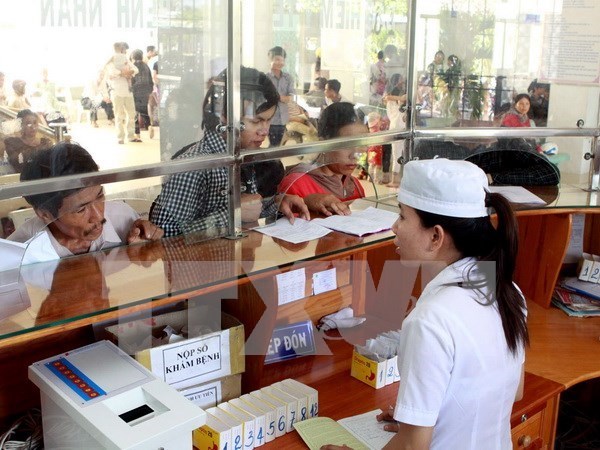
Anti-retroviral (ARV) treatment for people living with HIV/AIDS will be paid by health insurance from June 2016, said the Department of HIV/AIDS Prevention under the Ministry of Public Health.
 |
Anti-retroviral (ARV) treatment for people living with HIV/AIDS will be paid by health insurance from June 2016, said the Department of HIV/AIDS Prevention under the Ministry of Public Health.
Accordingly, children below 6, poor people, and those from ethnic minority groups carrying HIV will receive a 100-percent payment from the insurance sector for check-up and treatment services. The rate for the near-poor and retired people is 95 percent, while those in other groups is 80 percent.
This is expected to be a sustainable measure for HIV/AIDS carriers, helping them easily access health services such as examination, HIV testing and preventive treatment.
The department said the ministry has proposed the Government to increase financial support for buying ARV drugs in the context of decreasing funding from international donors.
In 2015, the Government added 60 billion VND (2.7 million USD) to the budget for purchasing ARV drugs but the figure has yet to satisfy the real demand.
ARV therapy is an effective solution for people living with HIV, and preventing the virus from spreading through the community. Vietnam has been expanding free treatment for HIV carriers, with over 100,000 people with HIV receiving ARV treatment by the end of October last year.
The therapy has been applied in Vietnam since 2004. It is now carried out in 325 treatment centres and 562 medical stations in all 63 provinces and cities.
According to the World Health Organisation (WHO), the use of ARV therapy, particularly in the early stage of the disease, can lead to substantial reductions in the rates of death and suffering.
ARV treatment has also been proven to reduce the rate of new infections to between 2-4 percent, while easing the financial burden for families with HIV/AIDS patients.
Since 2013, the WHO has recommended the treatment for preventing HIV infection, particularly for pregnant women, young children, and at-risk populations exposed to HIV.
Preliminary statistics show that about 102,000 HIV patients in Vietnam are being treated by the therapy. Around 95 percent of ARV drugs in Vietnam are funded by international organisations which plan to reduce, or even end their assistance by 2017.
(Source: VNA)





